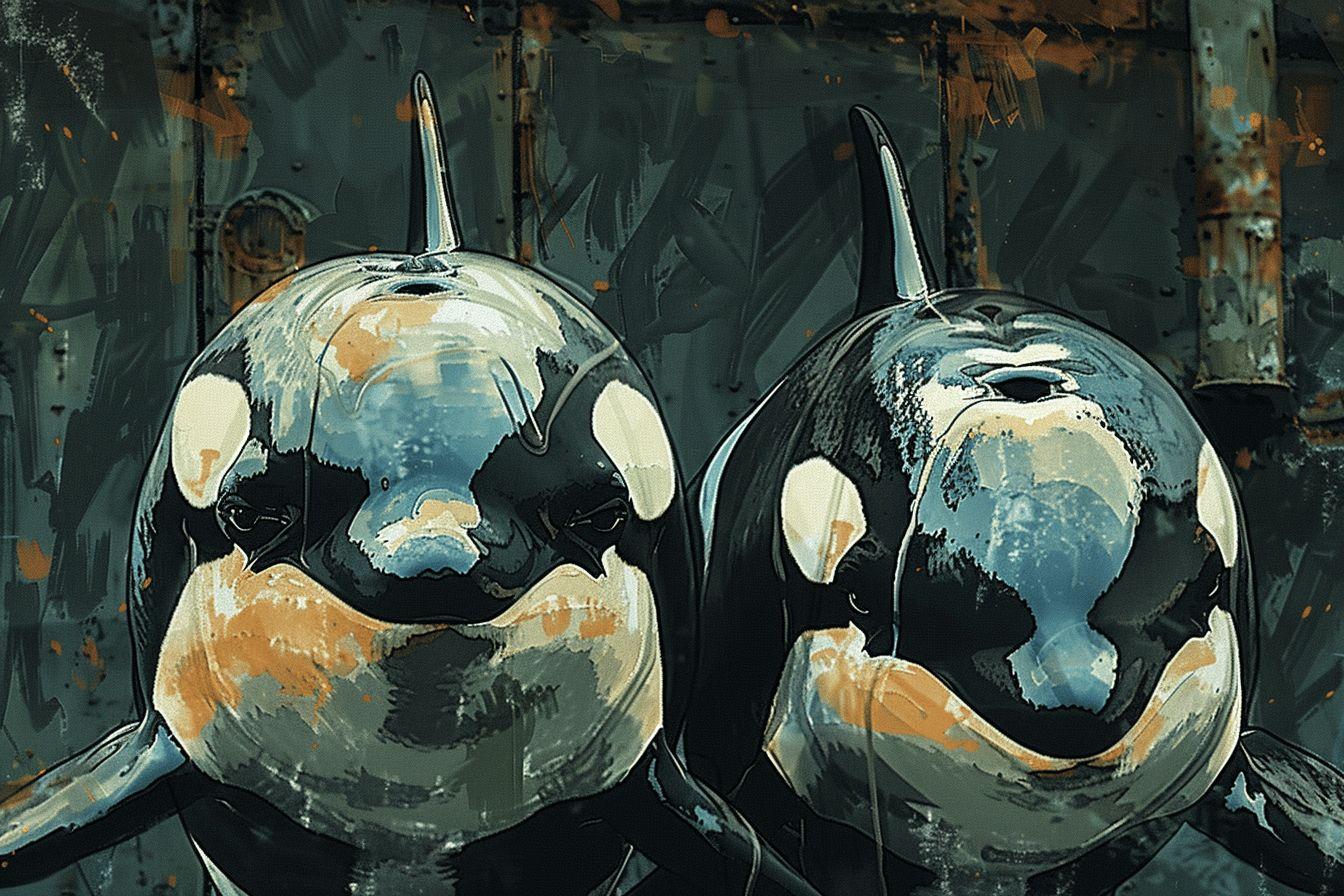In a world where animal ethics is increasingly at the heart of debates, the story of Wikie and Keijo, the last orcas at Marineland in Antibes, resonates with a deep sense of despair. Born in captivity, these cetaceans symbolize the conflict between captivity and animal welfare, as deadlines loom for aquariums that must now part ways with their wild animals. Their uncertain future, exacerbated by the imminent closure of the park and the lack of viable solutions, raises crucial questions about how we treat marine creatures and the ethical responsibilities that arise from it.
The fate of Wikie and Keijo, the two iconic orcas of the Marineland aquarium in Antibes, has become an increasing concern. As the park’s closure approaches, the future of these marine animals, born in captivity and unable to survive on their own, remains uncertain. The absence of viable solutions and the calls from animal protection associations highlight the ethical and emotional stakes related to their plight.
A changing aquatic park #
The aquatic park in Antibes officially closed its doors on January 5, 2025, leaving the animals that lived there in a precarious situation. The change brought about by the legislation of 2021, which bans wild animal shows starting in December 2026, hastened the end of these places of entertainment. But what will happen to the cetaceans that have been accustomed to human care? With shelters and sanctuaries already saturated, the concerns of associations regarding animal welfare are growing.
À lire Tribal identity cards remain valid for domestic air travel
Inadequate solutions #
With a deadline approaching, the fate of Wikie and Keijo is becoming increasingly alarming. These two orcas, mother and son, were born in captivity, and their integration into the wild seems impossible. Although some options have been discussed, such as a potential transfer to a dolphinarium in Japan, these proposals have quickly been rejected by French authorities, citing inadequate animal welfare conditions. The situation of these orcas raises fundamental questions about how we should treat these animals and the solutions proposed to them.
The sanctuary as a last hope #
Animal rights advocates have argued for a transfer to a sanctuary in Nova Scotia, Canada, where Wikie and Keijo could live in semi-freedom. Unfortunately, this option also seems compromised, as discussions are leaning towards a transfer to another aquatic park, the Loro Parque in Tenerife. As Muriel Arnal, president of the association One Voice, alerted: “If we do that, we send them to their death.” This dilemma is particularly concerning, as it highlights the limitations of existing structures to ensure the well-being of these animals.
The voice of experts #
The opinions of marine conservation specialists, such as Pierre Robert de Latour, highlight the crucial need for space for orcas. According to him, the tanks of the new aquatic parks would not be sufficiently sized to meet the natural needs of the orcas. His statement: “Their tanks will be one meter larger. What difference does that make? These animals need a lot of space,” echoes the reality of life in captivity.
Future perspectives #
Unfortunately, the future of the orcas at Marineland seems tangled in a complex and often failing system. The law has been put in place to abolish animal cruelty, but it must also include the responsibility to find viable solutions for animals already in captivity. Short-term prospects seem grim, and without quick and decisive action, Wikie and Keijo risk becoming tragic symbols of a situation that deserves our utmost attention and compassion.
À lire The must-visit Japanese ryokans to experience at least once in your life
As the debate surrounding animal welfare reaches unprecedented levels, it is imperative to rethink our approach to captive animals. Wikie and Keijo are not just numbers on a page, but living beings deserving a chance to lead a dignified existence that respects their fundamental needs.


